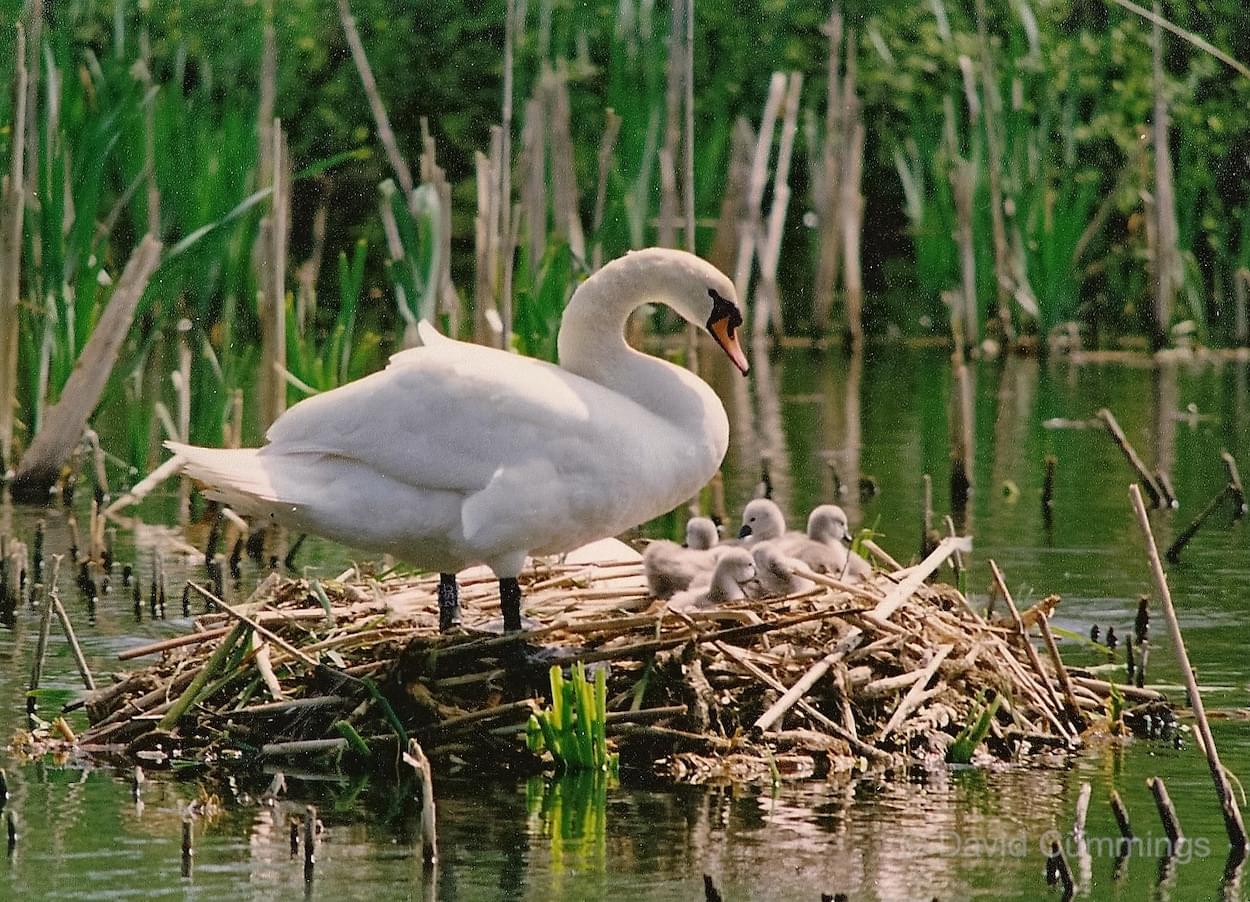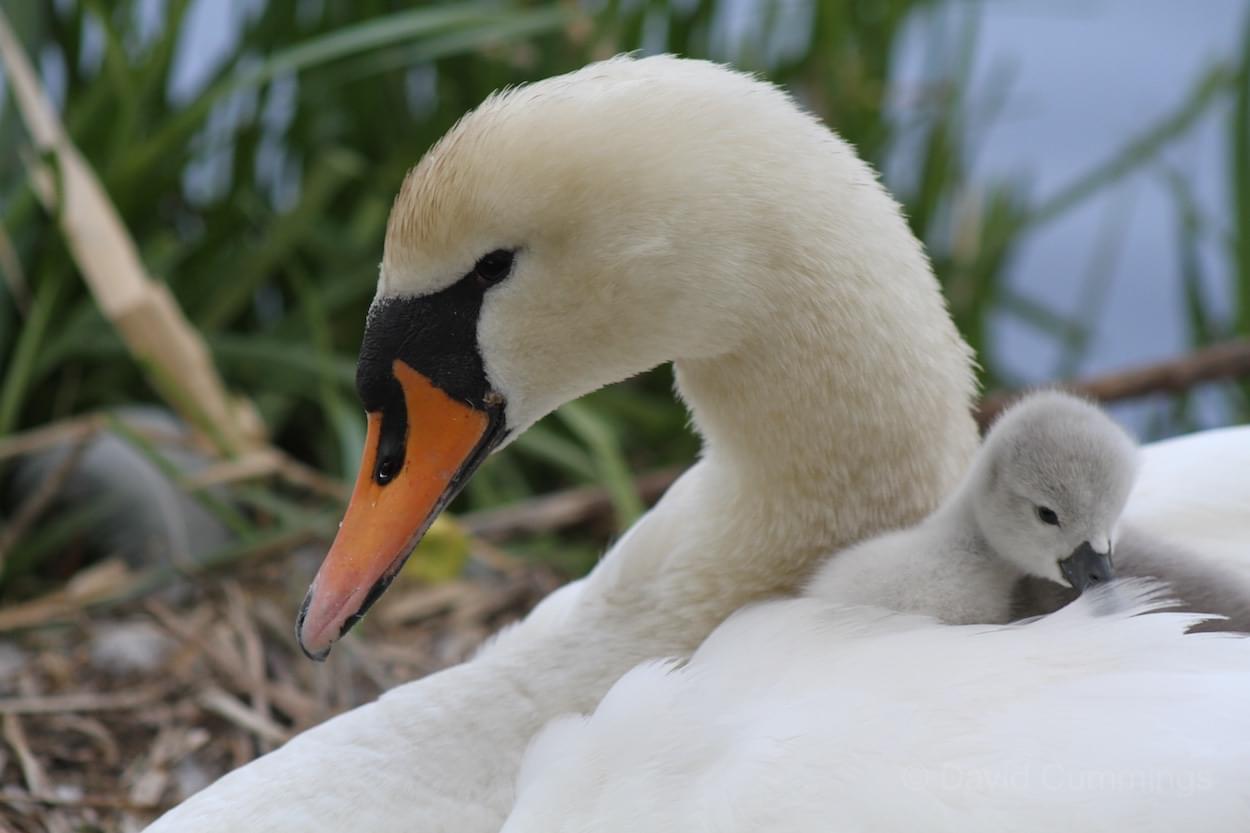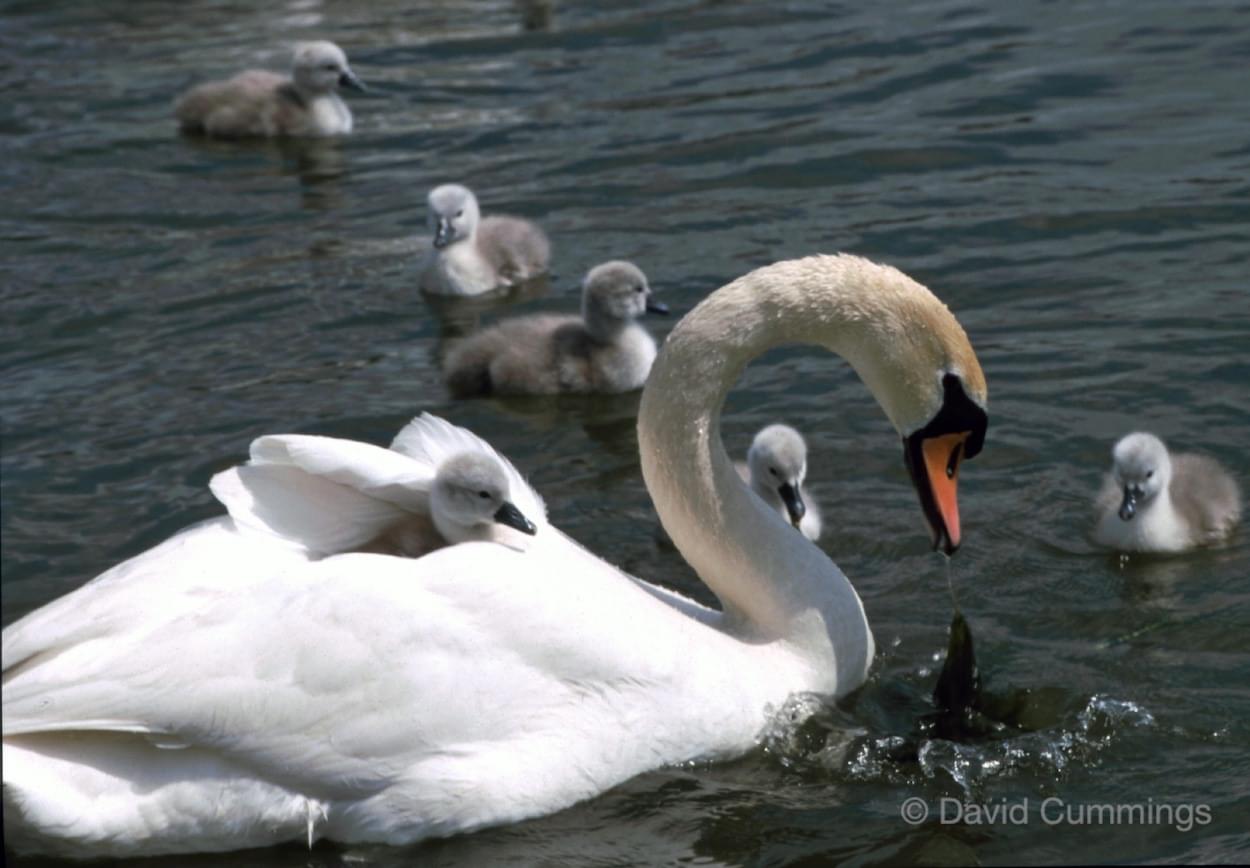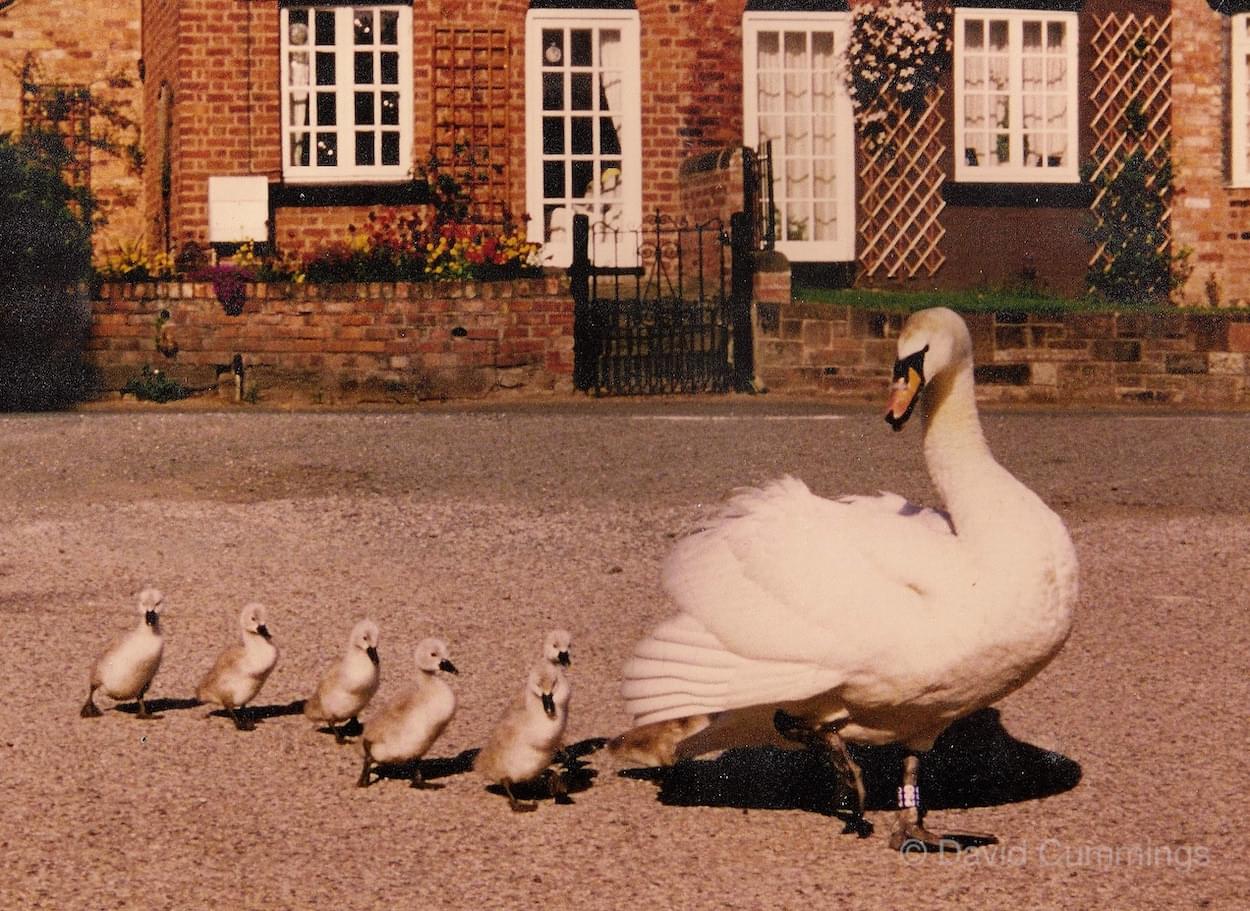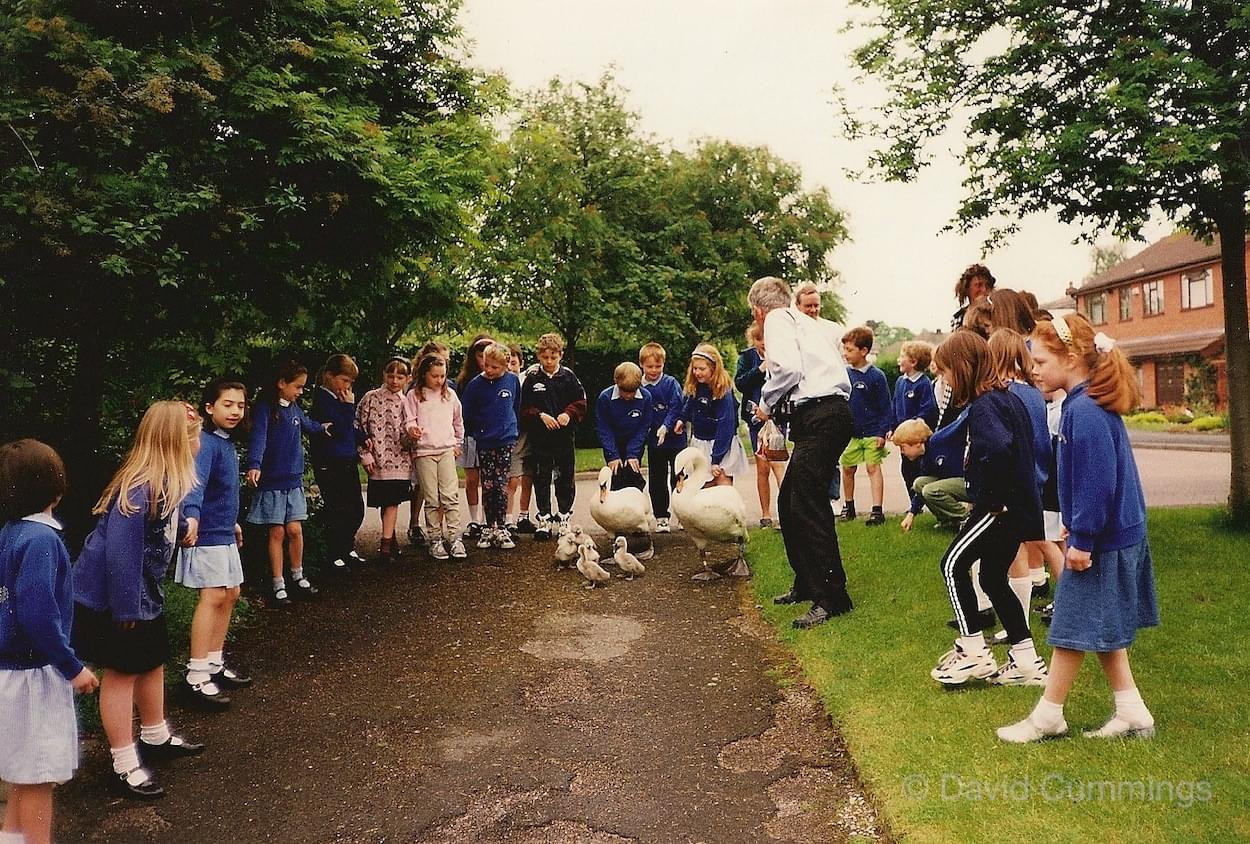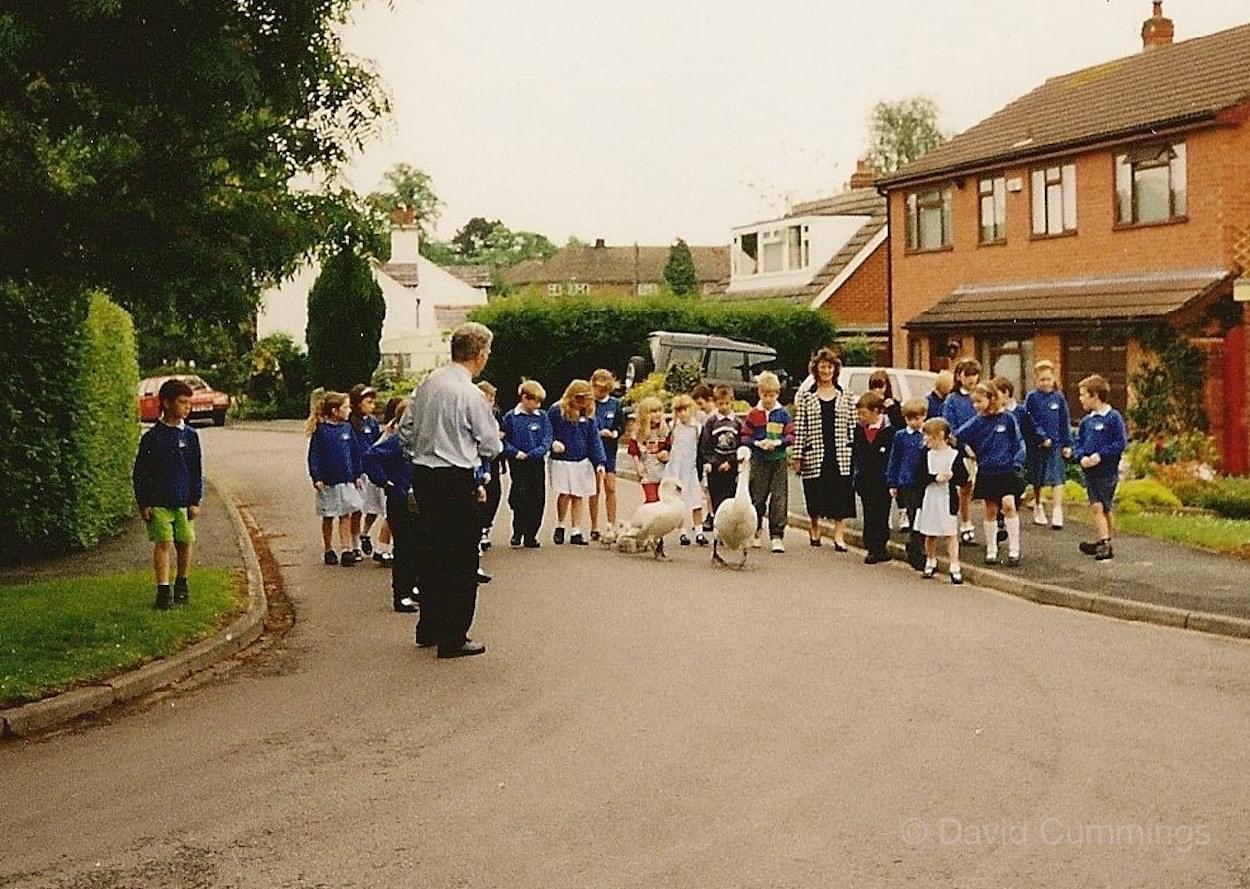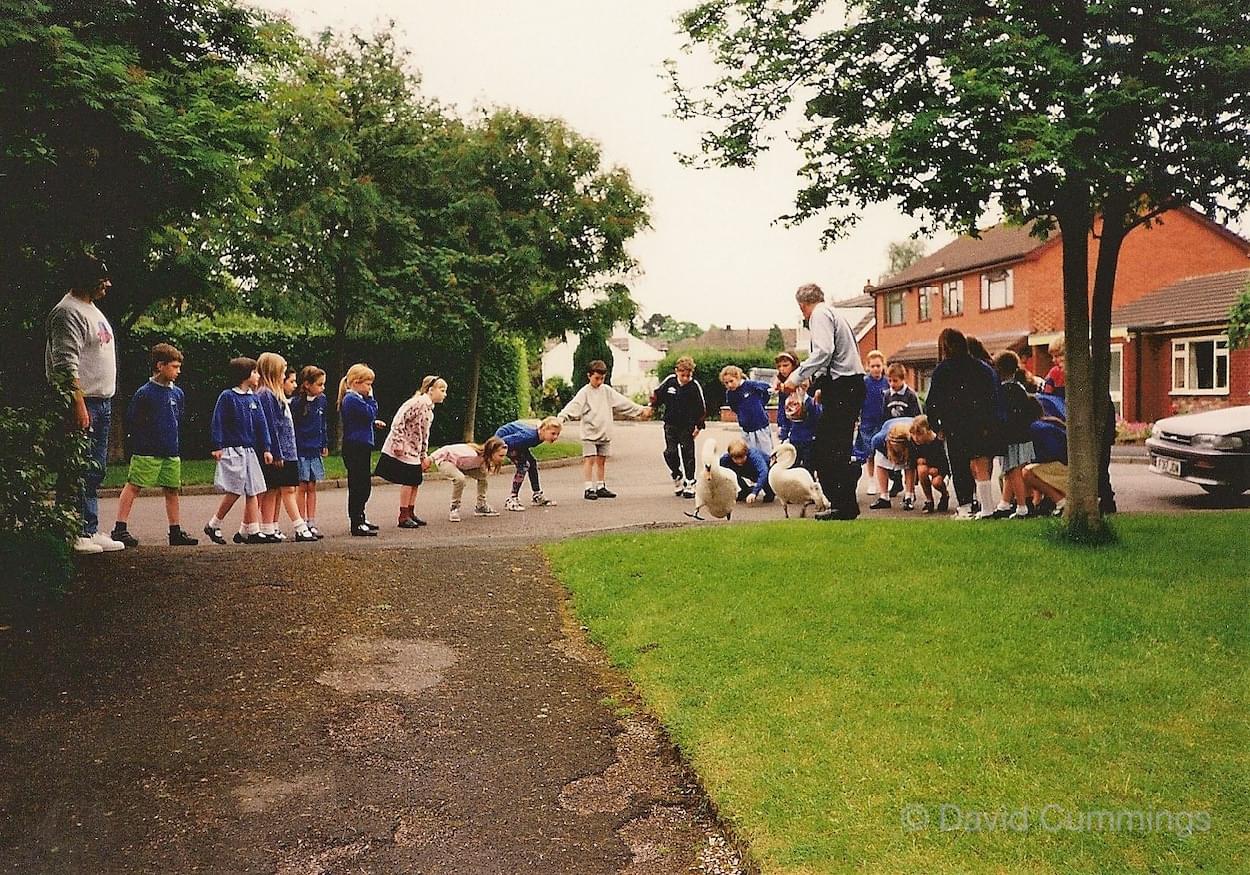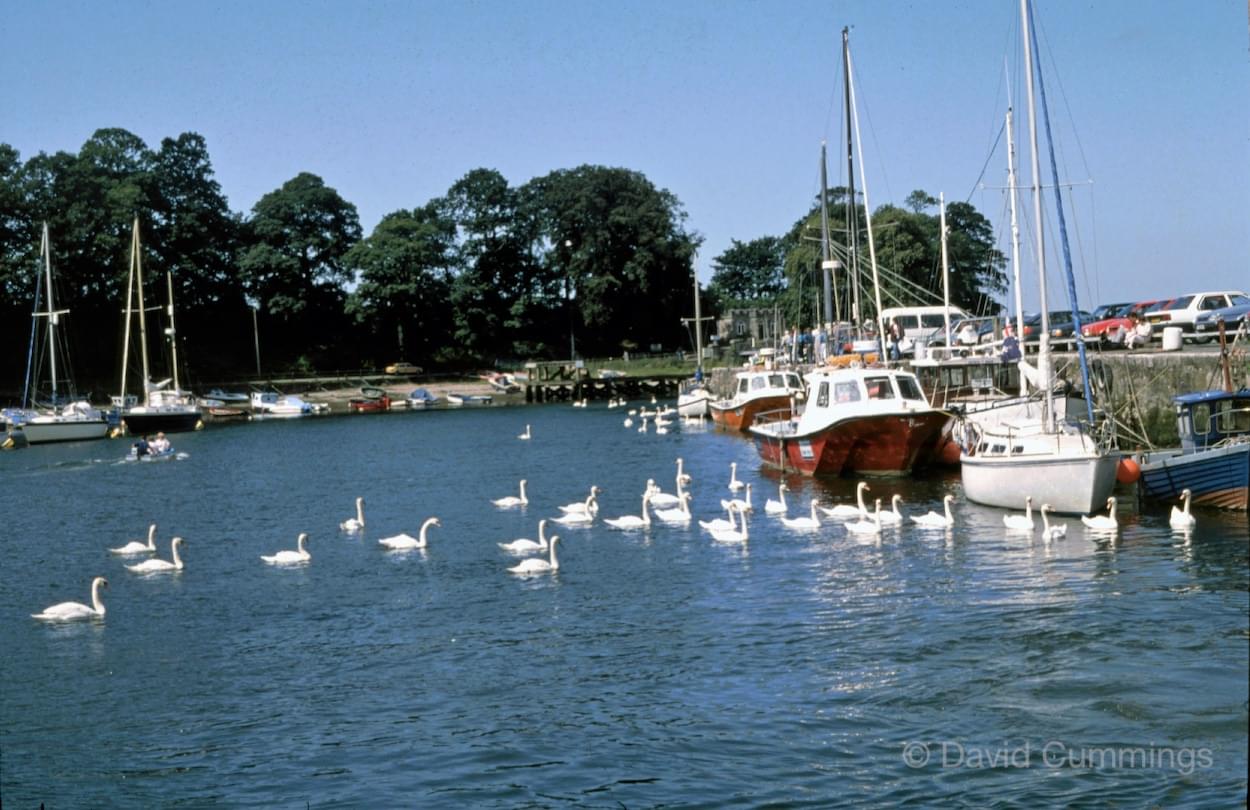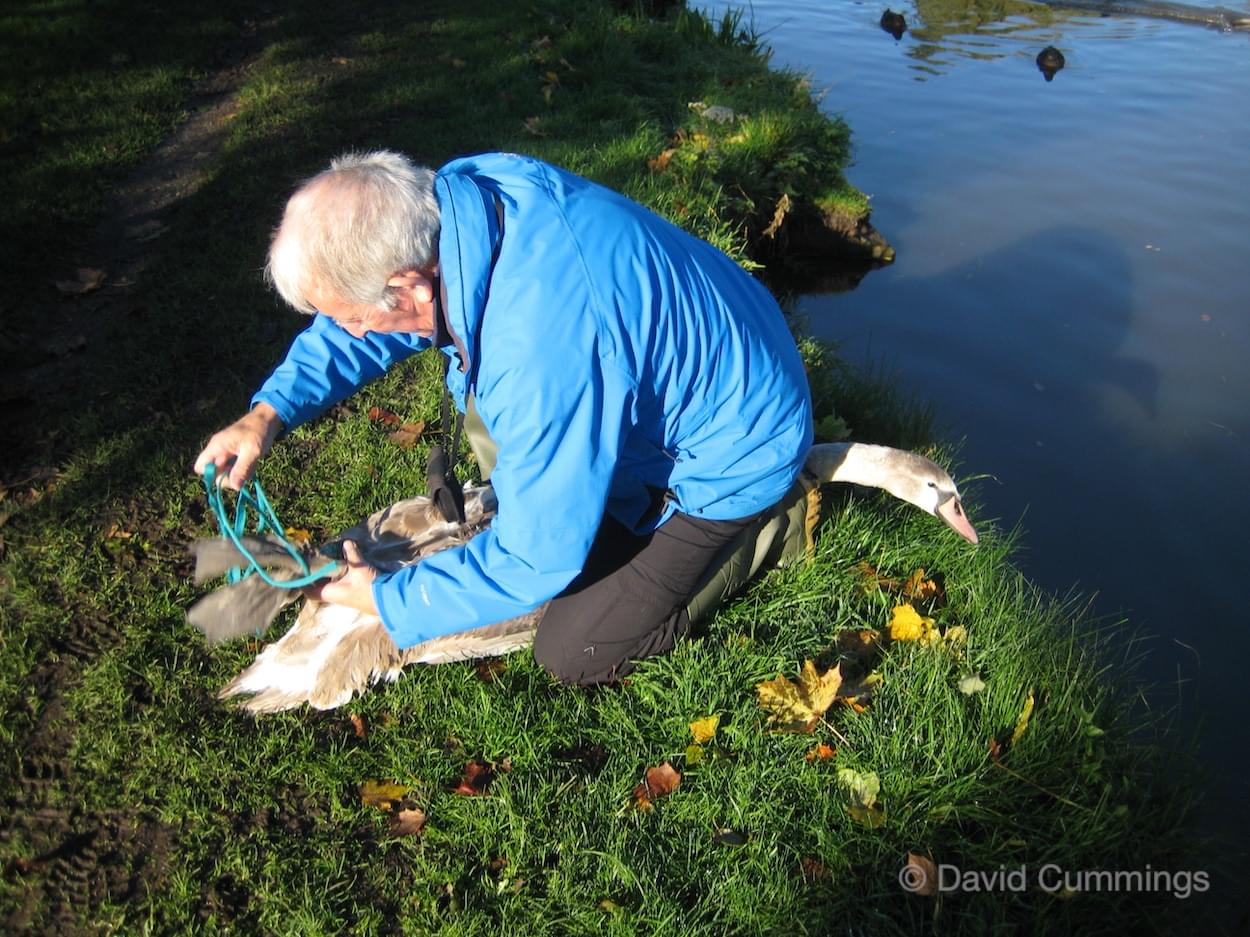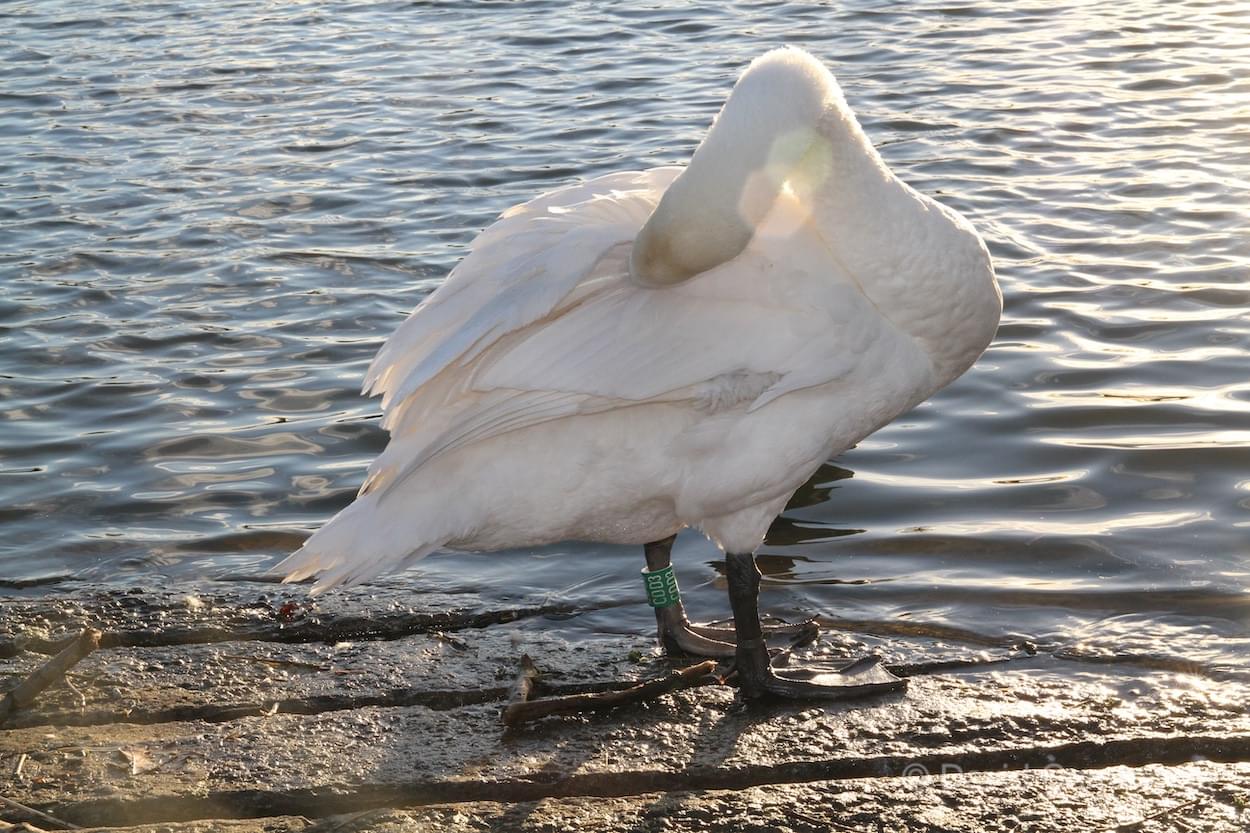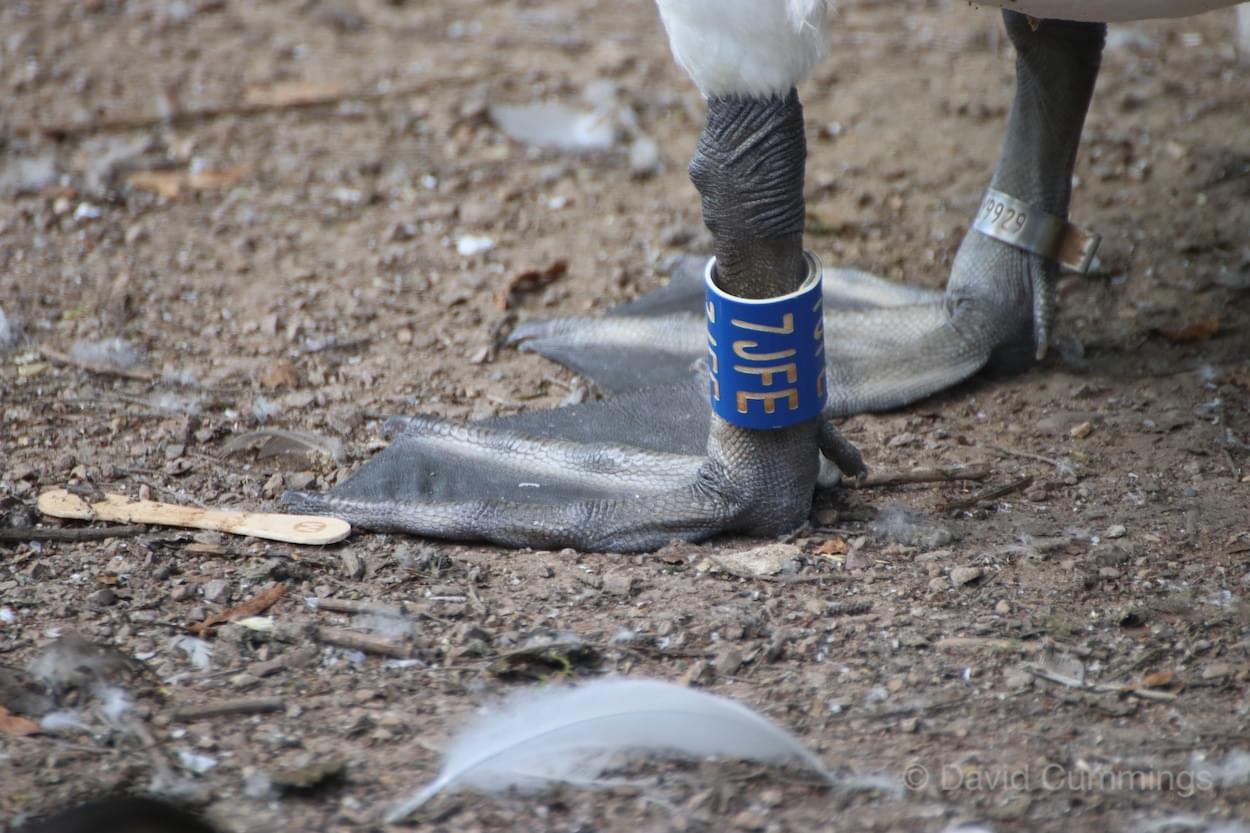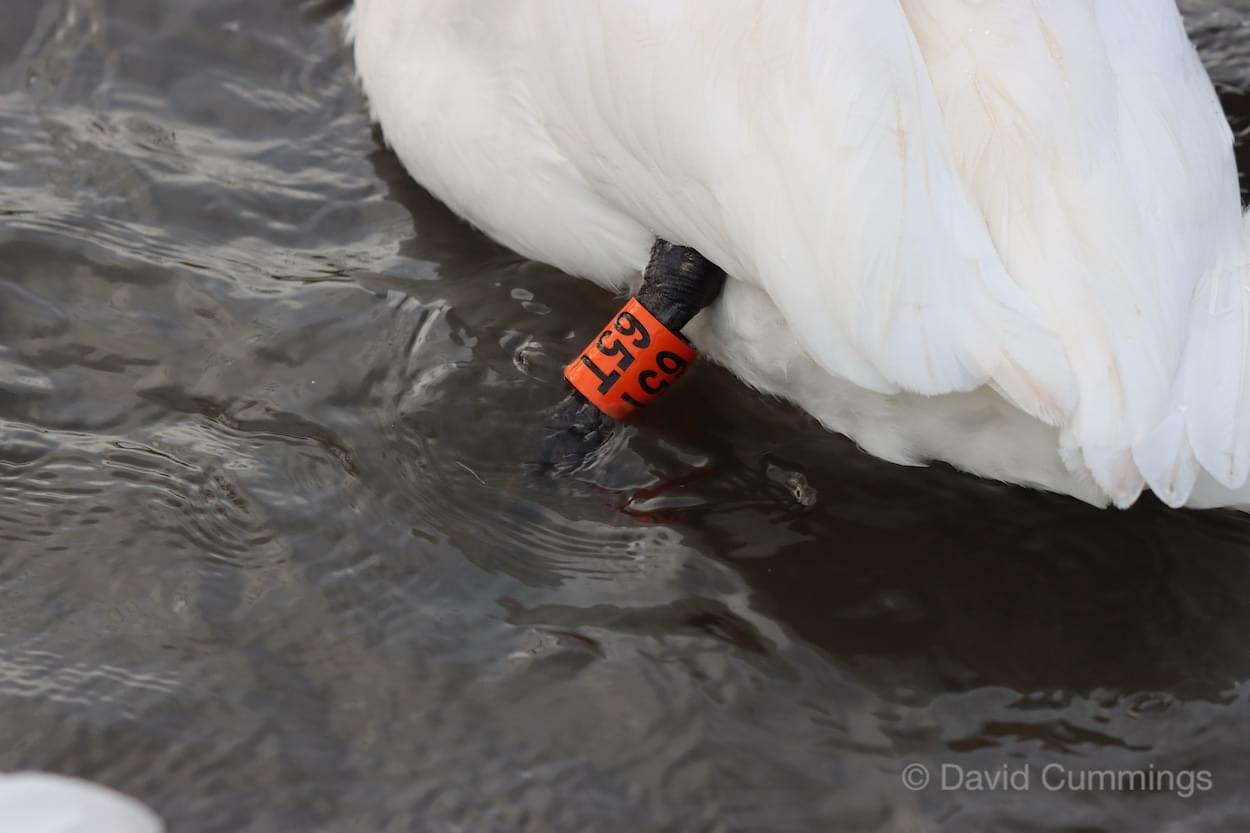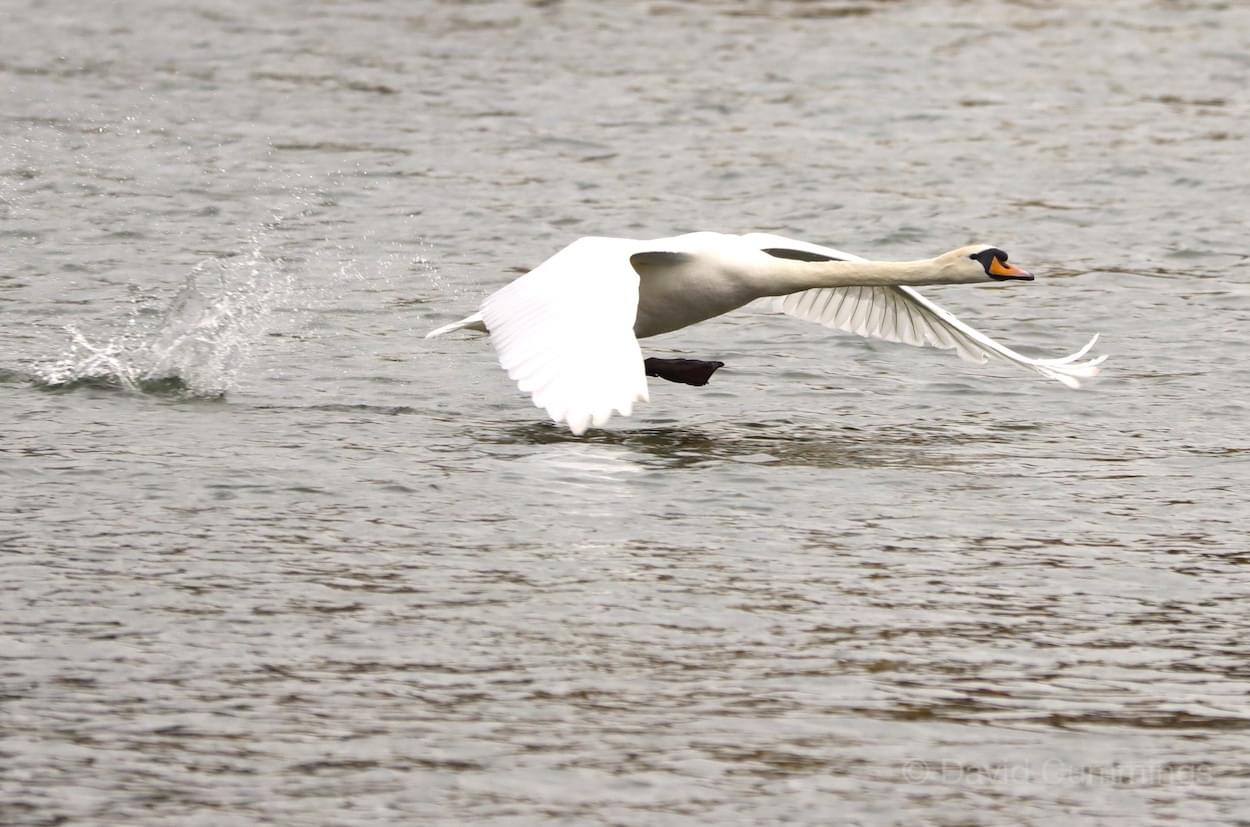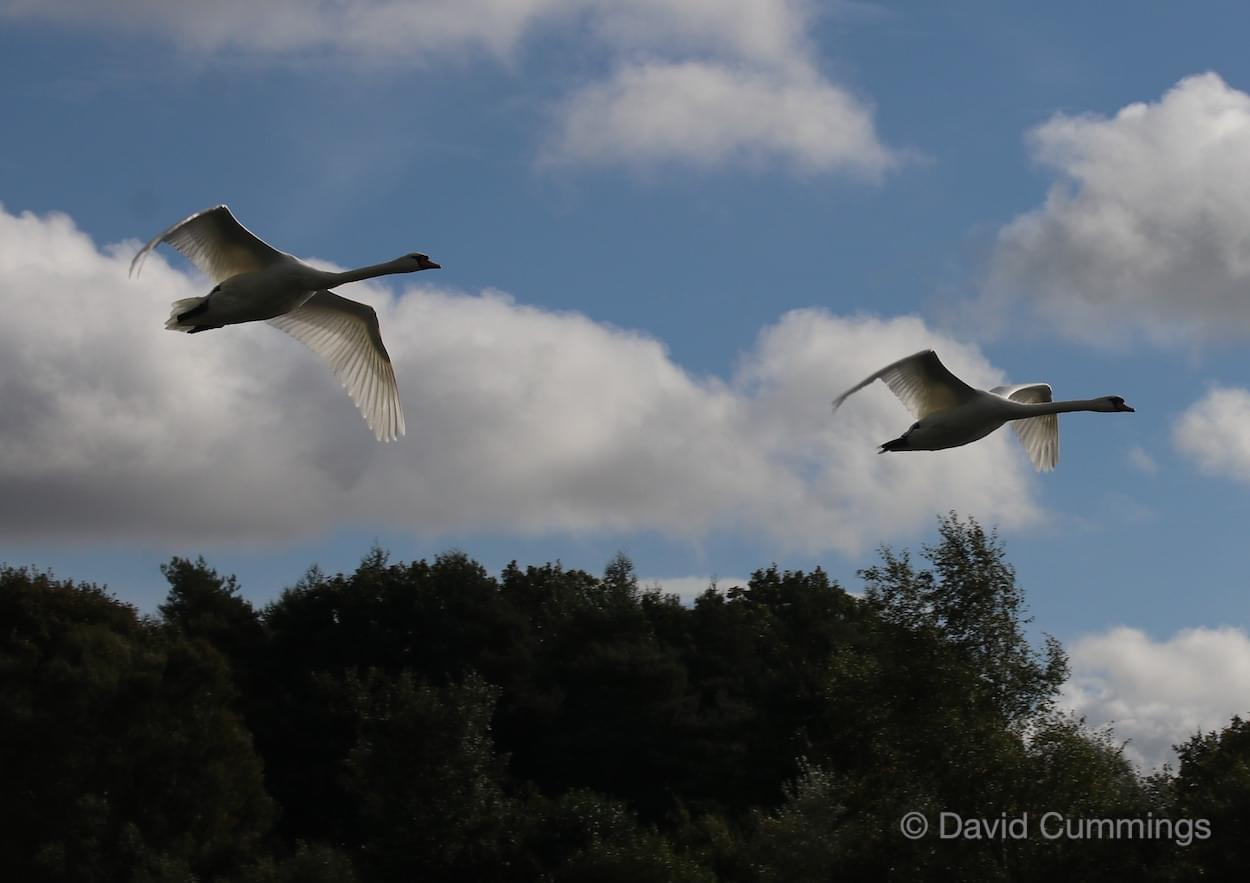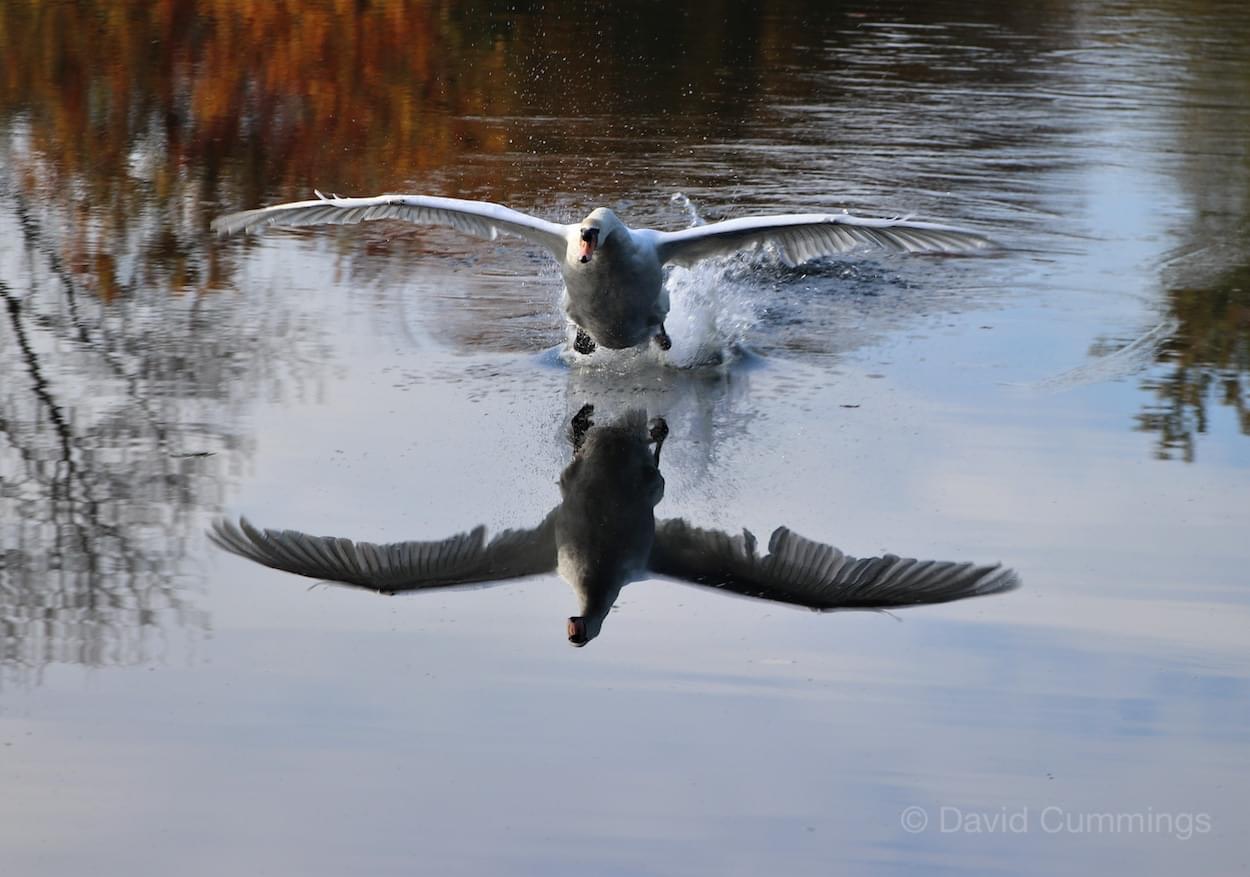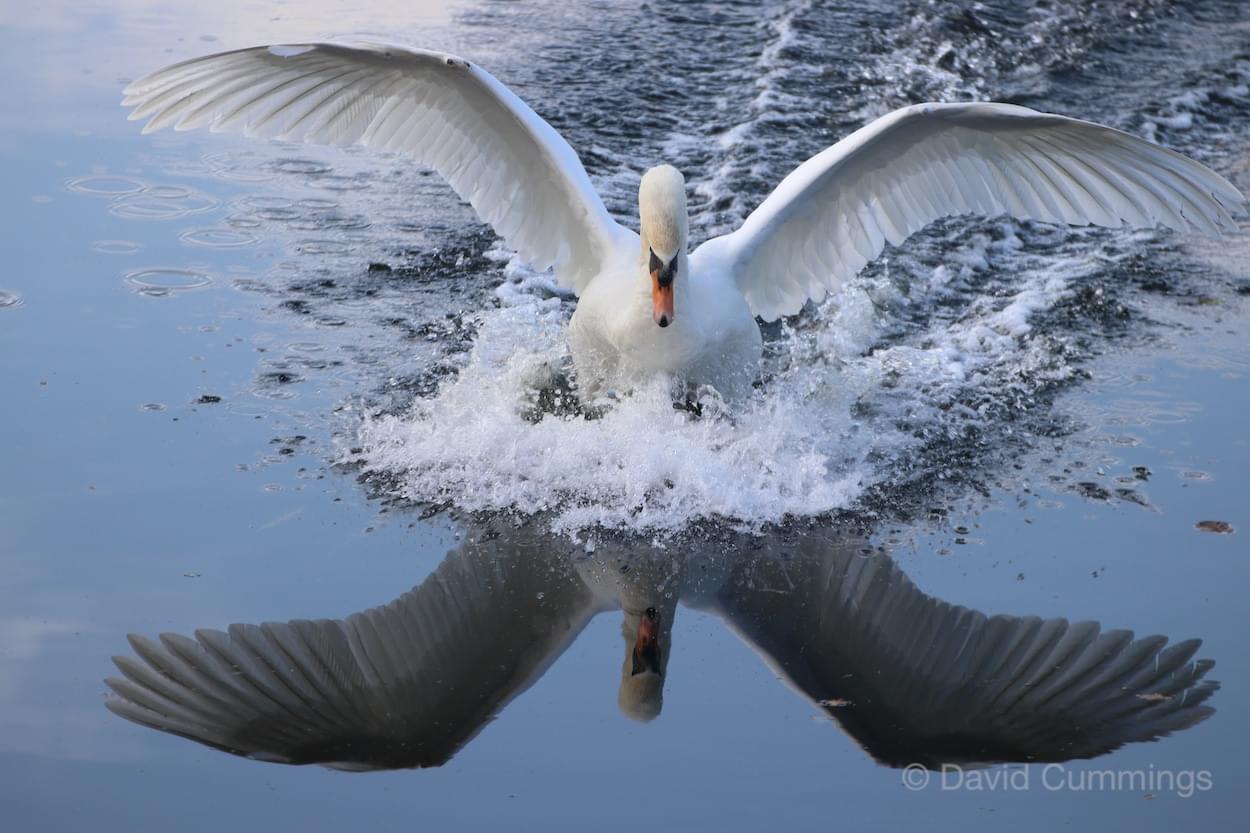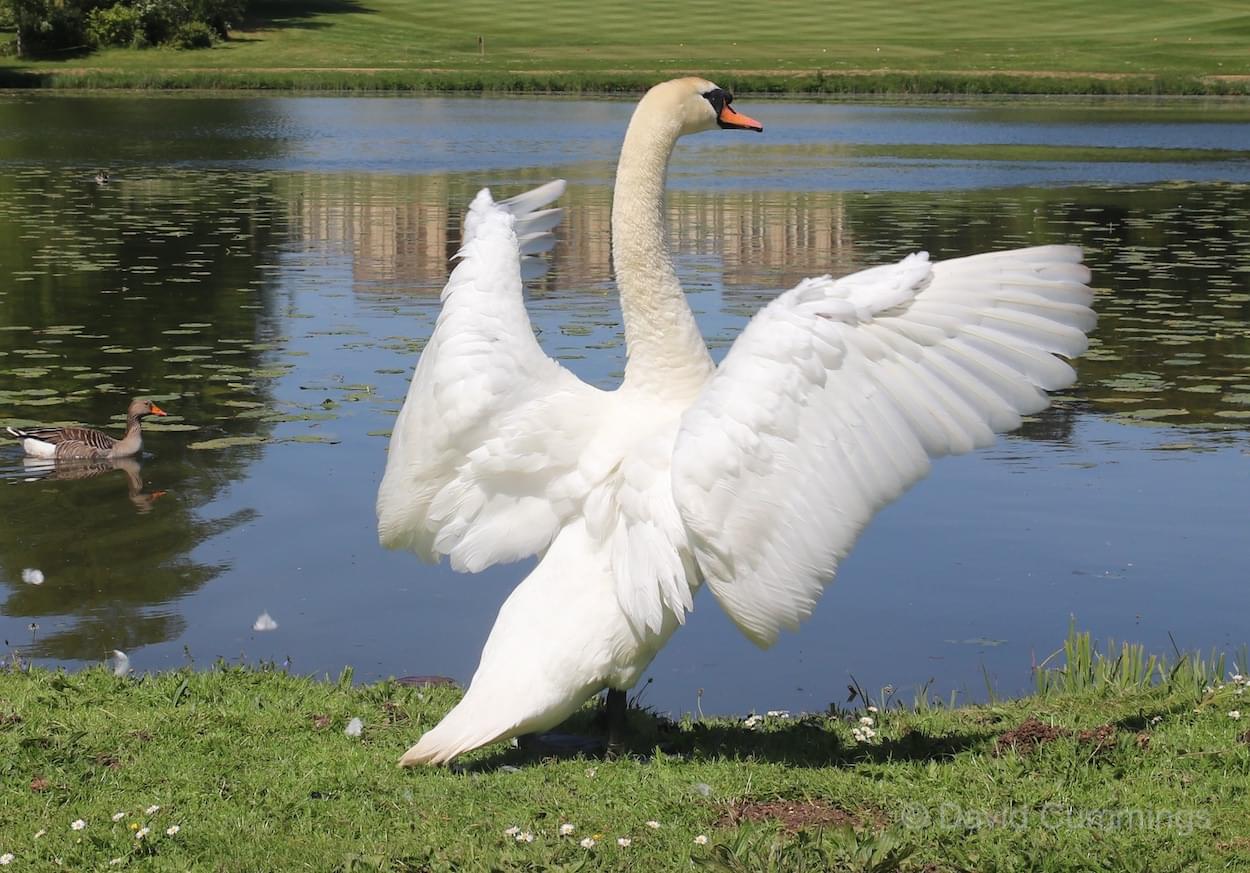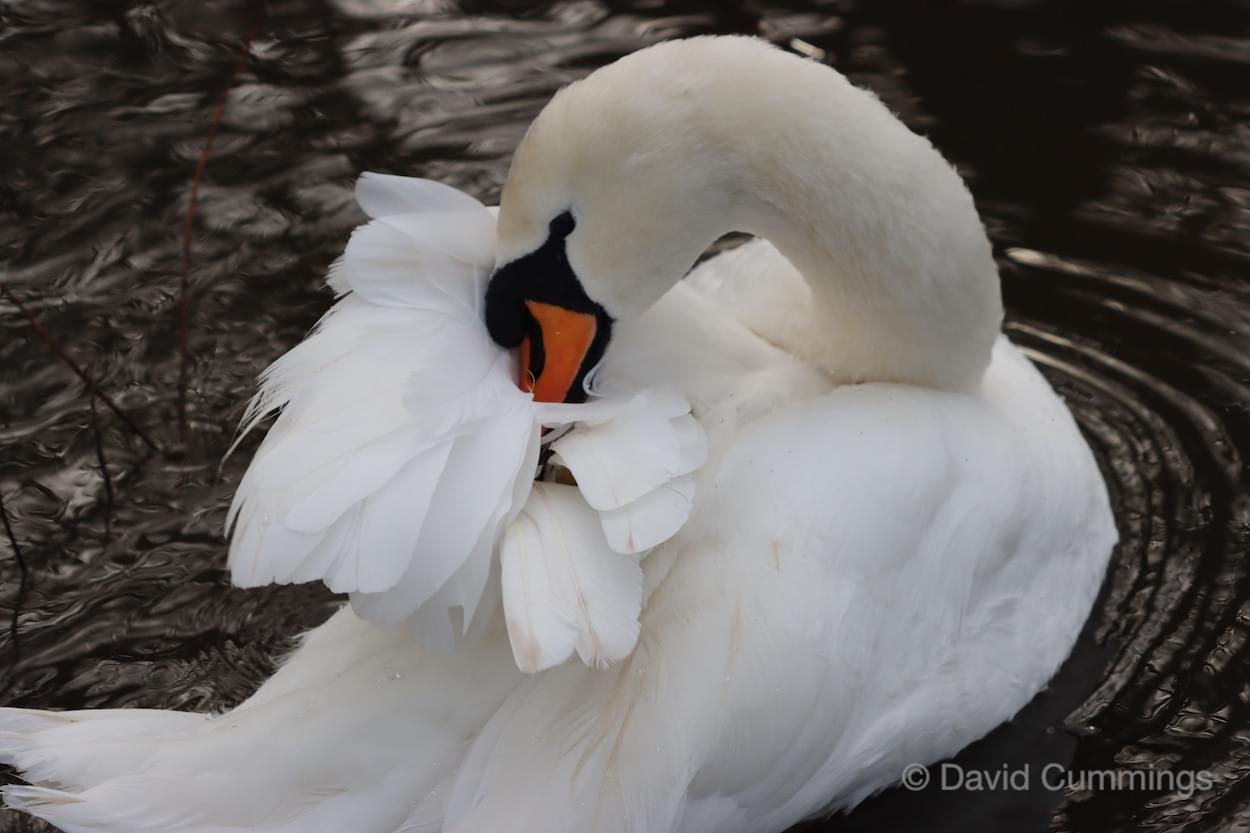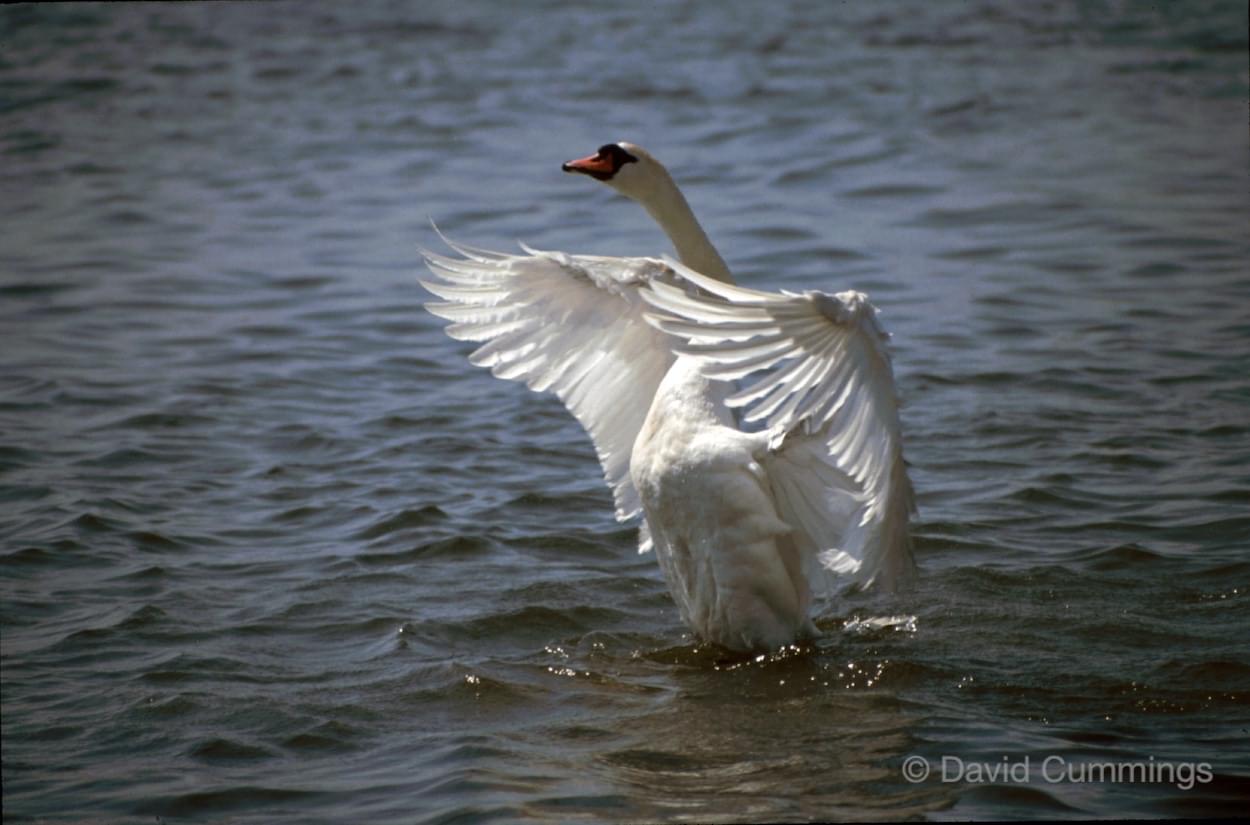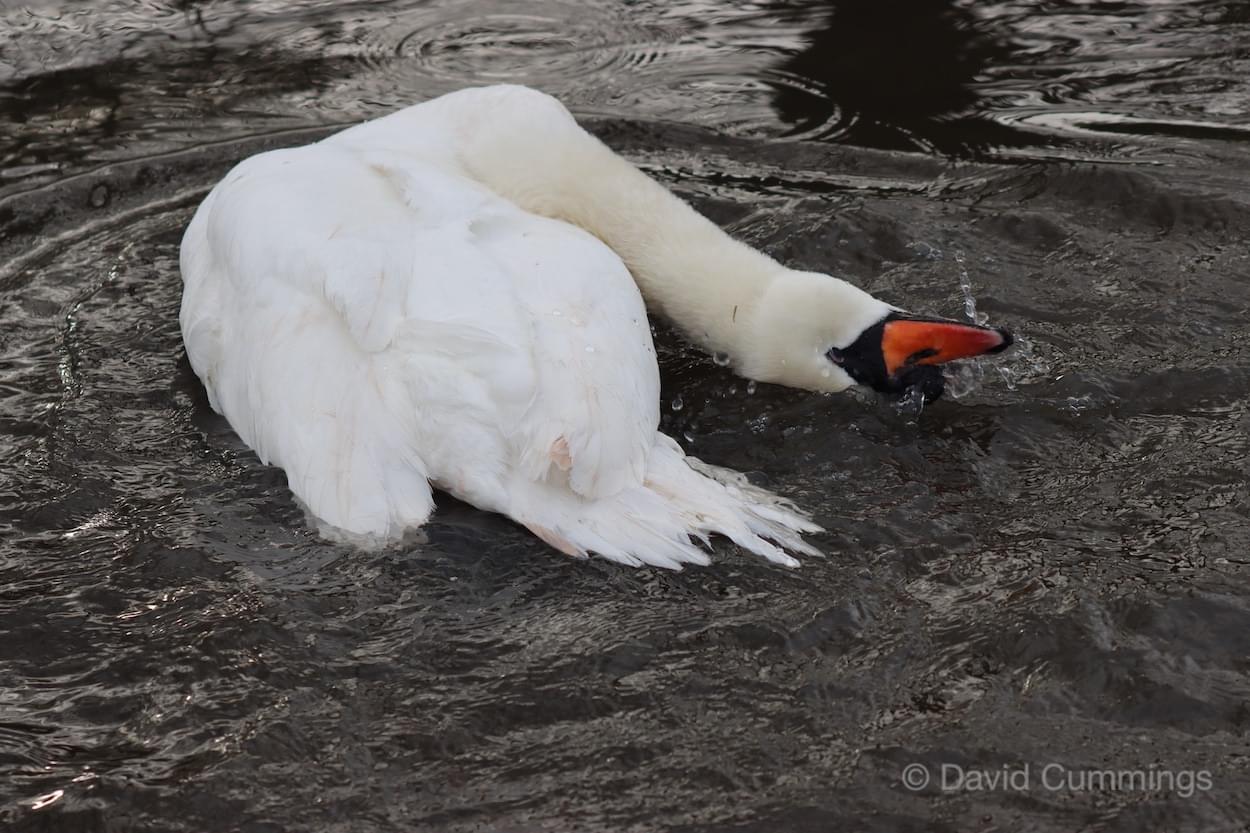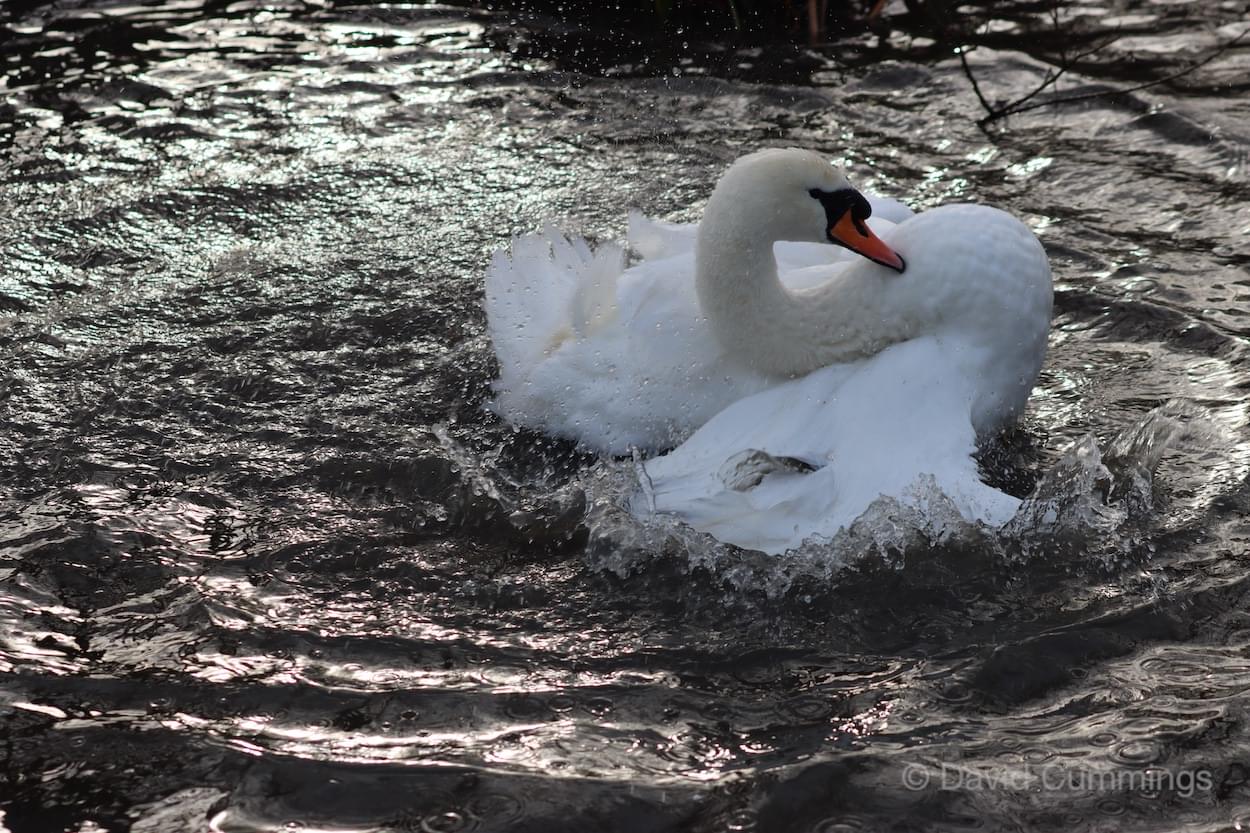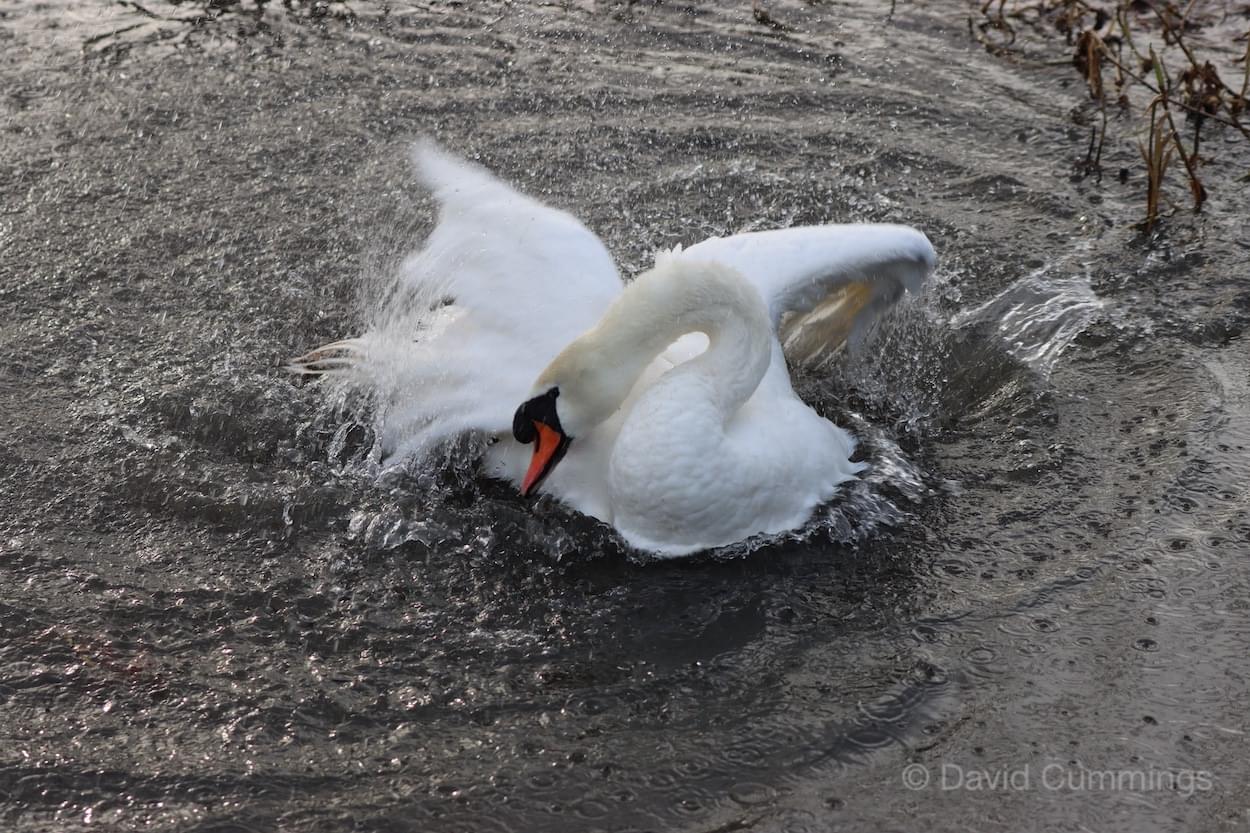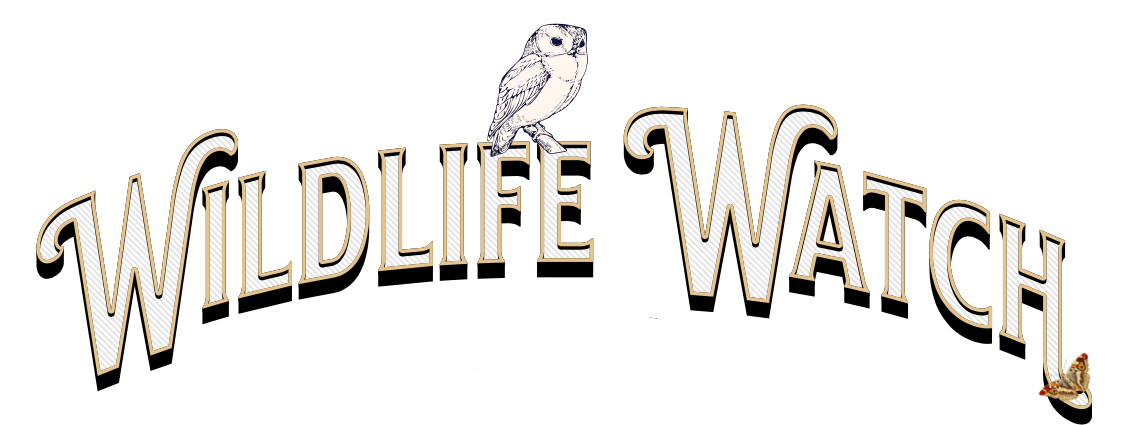
MARCH

BY DAVID CUMMINGS BEM
Mute Swans
I know that many people in the village are very anxious to have mute swans back on the Pit. Unfortunately there are very few swans moving around in this part of Cheshire at present, and I have only a small number of breeding pairs to keep an eye on. One of those, at Walk Mill in 2023, sadly had all their cygnets predated when they were about three weeks old. There are a pair on the lakes at Eaton Hall, but they don’t seen to move down river when mature. A pair on the canal basin at Chester, are being discouraged from nesting, but I think the same pair were successful in breeding a couple of cygnets further along the canal towards Caughall Bridge.
The last attempt to bring cygnets to the Pit was again unsuccessful, as all six died of avian flu. The Pit should have been a good release site for the RSPCA Stapeley Grange, but the spread of avian flu was at its height in December 2022. This month I’m sharing with you some of the happier days of swans in the village, although you will see that they were always very keen to move/migrate to the canal, as the big fish eat most of the vegetation growing in The Pit. This regular movement of swans and cygnets brought much amusement to the village, but a lot of worry to myself, in trying to get them to safety on the canal. The movement could take place at any time from 5.00am to 3.30pm. My worse nightmare was when they got onto the A41, with all the traffic travelling at speed along towards Sainsburys. The Cheshire Swan Study group ringed most of our cygnets over the years, and the ringing process enabled us to see Christleton swans at places like Caernarvon, shown in the illustrations. The Swan with a green leg ring is from Cheshire, the blue ring from Shropshire and the red ring from the Midlands. There are other colours used in different areas.
Swans actually fly quite low compared to geese, and these photographs show a number of characteristic movements in flight and landing. I’m convinced that years ago when we had a pair at the Pit they would regularly put their web feet up coming into land and splash me. You can also see some images of bathing, preening and drying their feathers, an essential part of their daily routine. Most of my images these days are taken on my travels, and those illustrated include shots taken at Slimbridge, Stowe N.T. Landscape Gardens, and the sunset with the swans is at Bosham Harbour near Portsmouth.
Please let me know if you see any colour ringed swans along the canal or on The Pit, or anywhere on your travels, and I’ll try to get details of their history for you. I no longer work regularly for the Cheshire swan study group, as it’s a heavy task catching and holding a mute swan. Swans are a part of my life now having been involved for over 40 years, with my first interest being aroused when I visited the Wetland Trust Reserve at Slimbridge in 1961 as I was on Teaching Practice at nearby Dursley.
Historically swans have been part of our village culture since at least 1737, when the churchwardens signed the document for the new church building with the seal of a swan. Since then many Christleton Societies and both schools, have the swan as part of their emblem.
-
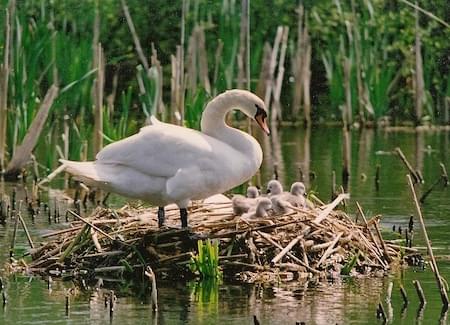
At Christleton Pit
-
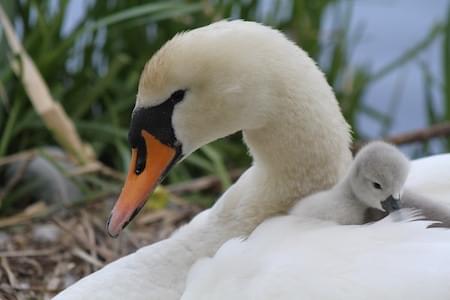
Swan and cygnet
-
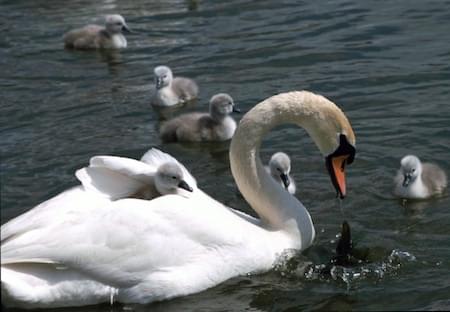
Pen Swan protecting a cygnet
-
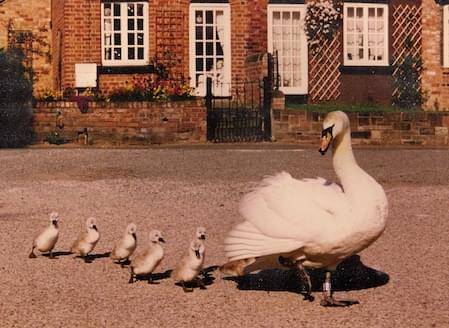
Swans walk through Christleton
-
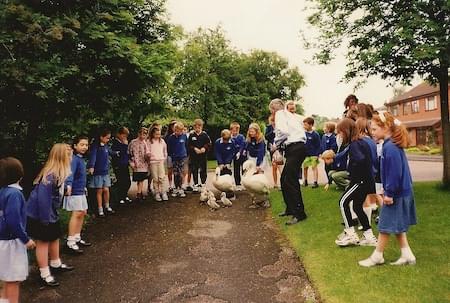
Swans in Rowan Park Christleton
-
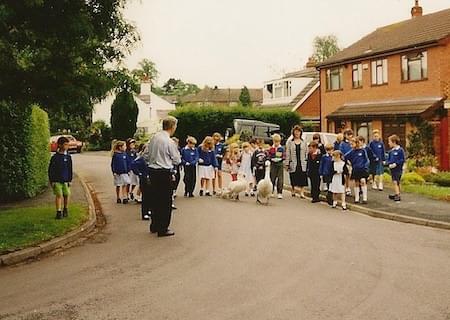
Swans on the move through Christleton
-
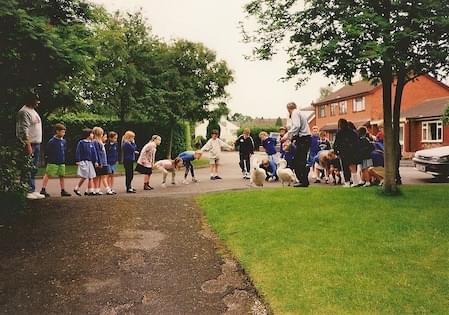
Swans near Christleton Primary School
-
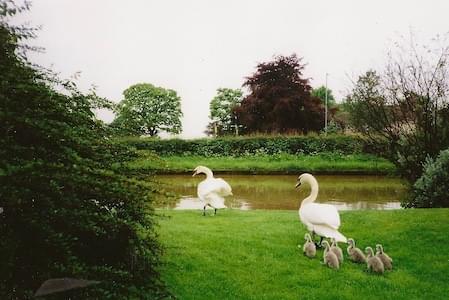
Wans going onto the Canal in Christleton
-
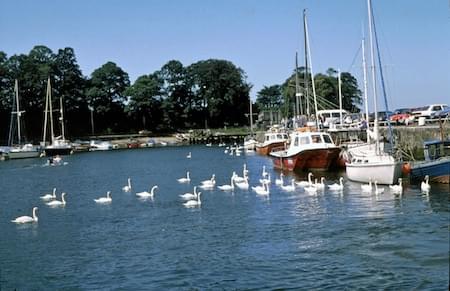
Swans in Caernarvon
-
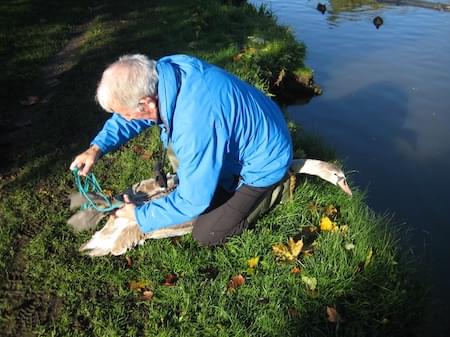
Swan Ringing
-
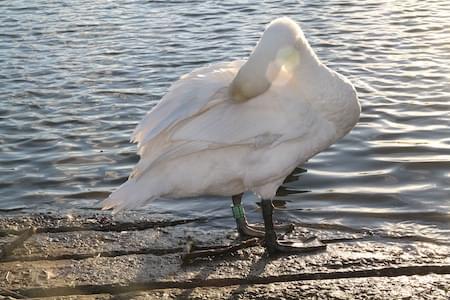
Green Ring Cheshire Swan
-
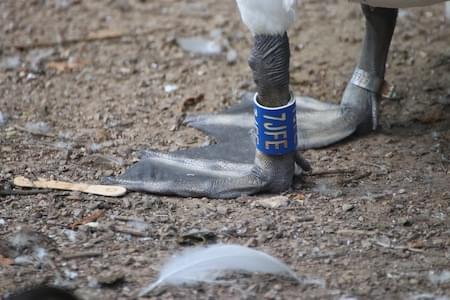
Swan ringed near Welshpool
-
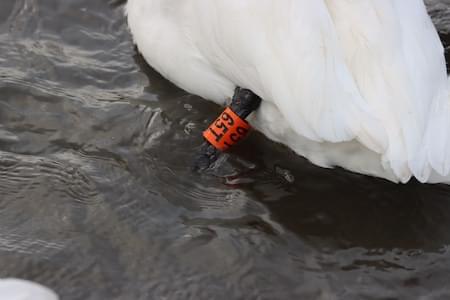
Swan ringed in the Midlands
-
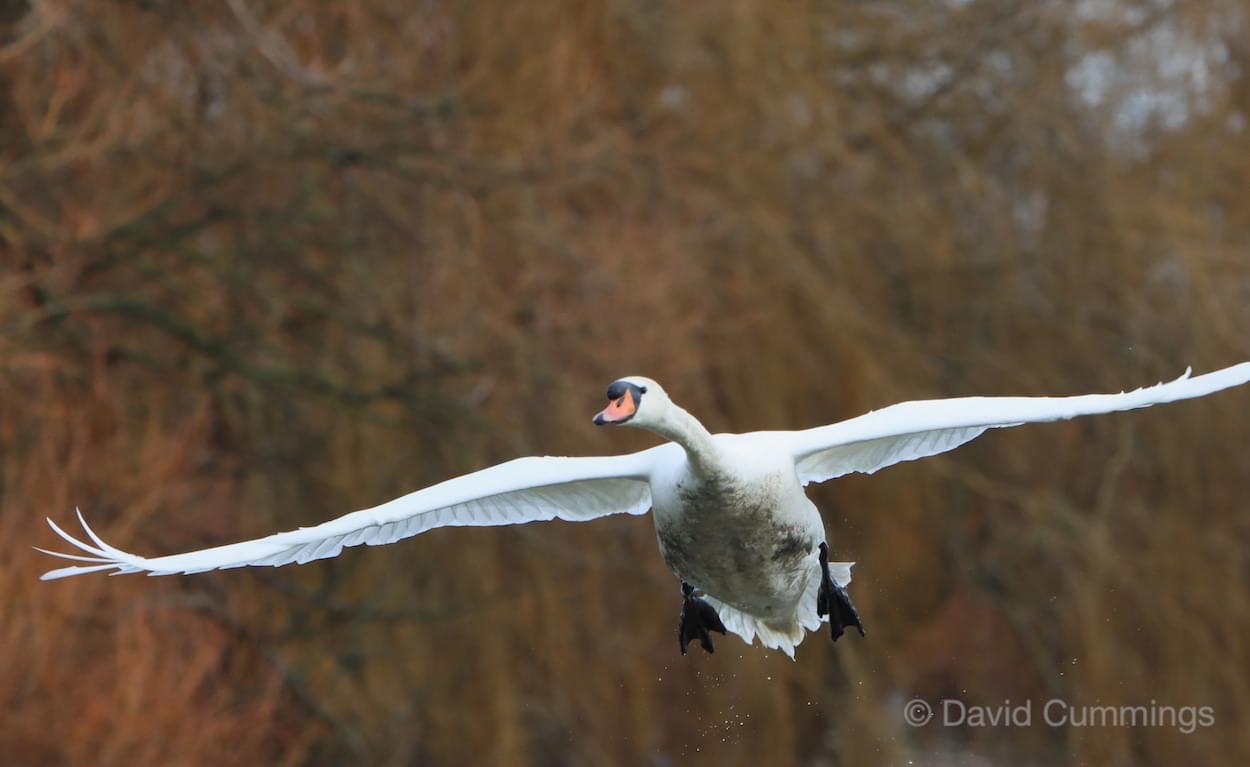
Swan in flight
-
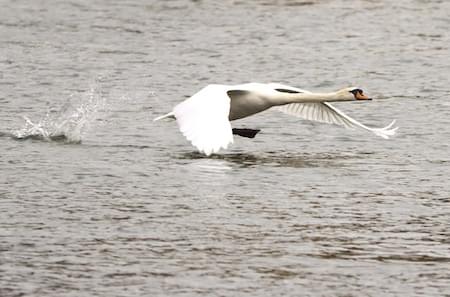
Swan in flight
-
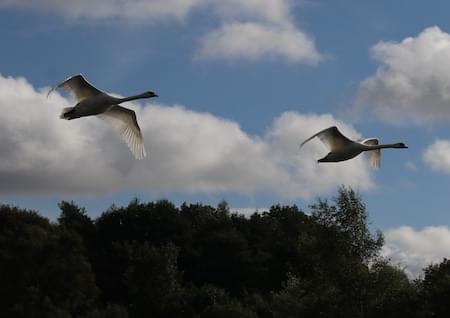
Swans in flight
-
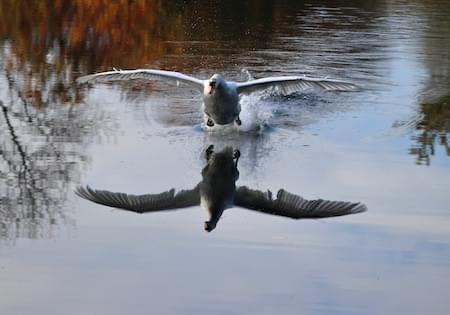
Coming in to land
-
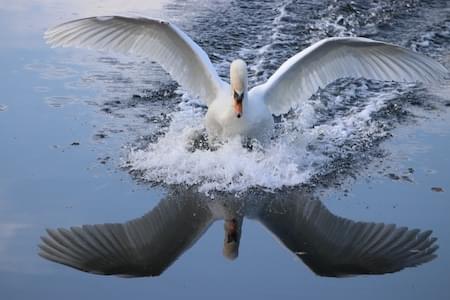
Swan landing on water
-
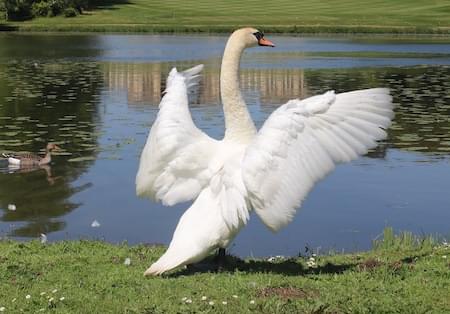
Swan drying flight feathers
-
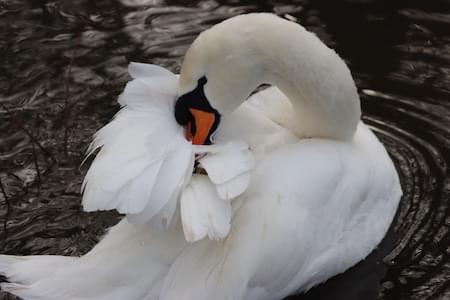
Swan preening
-
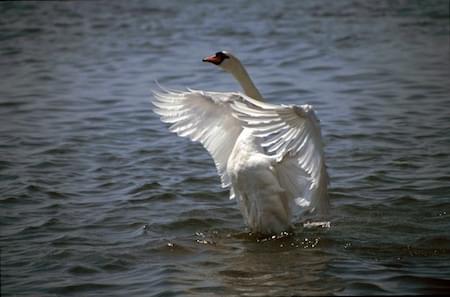
Swan drying flight feathers on the water
-
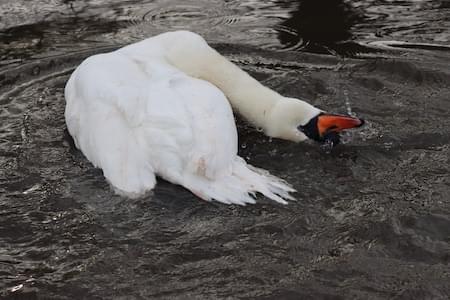
Swan bathing
-
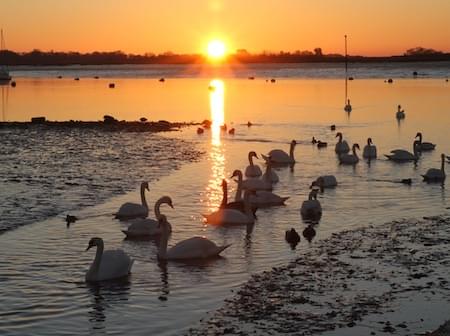
Swan flock at sunset
-
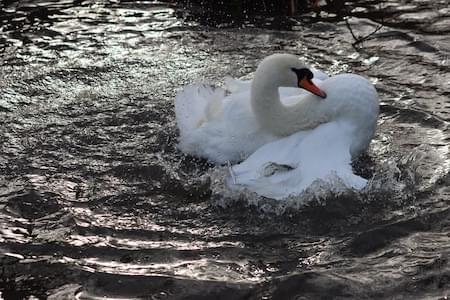
Swan bathing
-
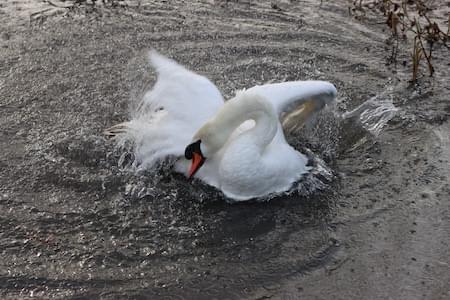
Swan bathing
